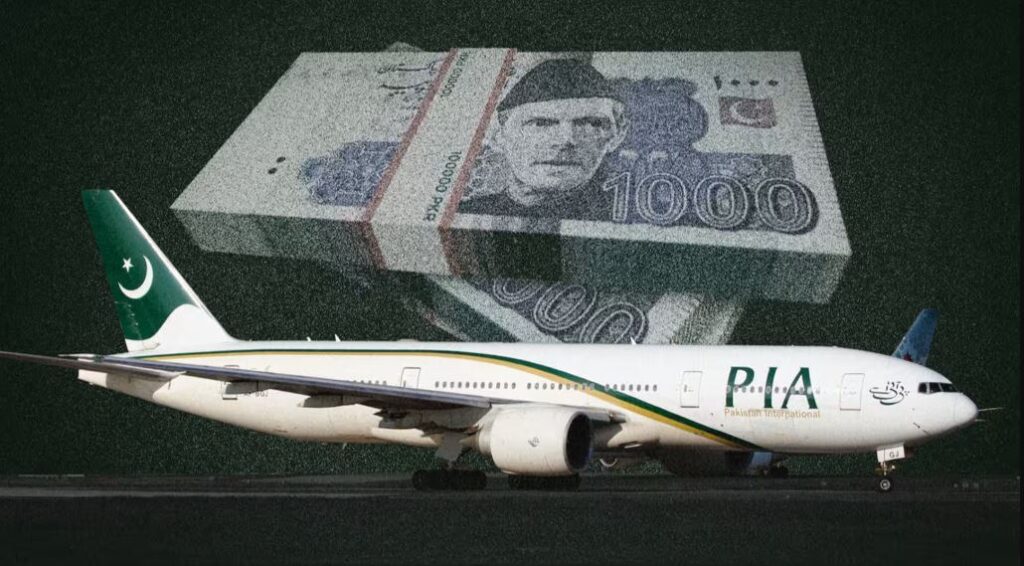- Web Desk
- Feb 24, 2026
Pakistan’s move to sell national airline a test case for privatising SOEs
-

- Web Desk
- May 21, 2024

WEB DESK: An article published in Nikkei Asia financial newspaper detailed the privatisation of Pakistan International Airline (PIA), the financial woes of the national career and the potential use case for future privatisation of State-owned Enterprises (SOEs). Here is the summarised version of the article, with the full write-up available here.
Government assures IMF of PIA privatisation “by June” this year
PIA, which has lost over $3.6 billion in the past 20 years, is at the forefront of the government’s ambitious privatisation plan. The move is part of a broader effort to sell off more than 80 state-owned enterprises to secure a multi-billion-dollar package from the International Monetary Fund (IMF) amid a severe economic crisis.
Ten companies, including local tycoon Arif Habib, Gerry’s Group, and three private airlines, have submitted bids for a majority stake in PIA. The deadline for bids, originally set for May 4, was extended to May 18. A successful sale of PIA is crucial for securing a $6-$8 billion IMF bailout, with the IMF requiring Pakistan to cease subsidies to money-losing entities as a loan condition.
“There is no official minimum acceptable price for PIA, but we expect bids to start from $300 million,” an anonymous official told Nikkei Asia.
Previous attempts to privatise the 80-year-old airline failed, notably in 2016 when employee strikes halted operations. However, this time the sale has the backing of the Special Investment Facilitation Council (SIFC), supported by Pakistan’s military, which is pushing for these reforms.
Eight companies express interest in acquiring PIA
Despite this, experts remain sceptical about the impact of privatisation on Pakistan’s broader economic issues. “Privatisation is not the solution to Pakistan’s economic problems,” said Asma Hyder, a professor of economics at the Institute of Business Administration (IBA) in Karachi.
PIA, Pakistan’s largest airline with a 41 per cent share of the domestic market and 22 per cent of international routes, has struggled with overstaffing, debt, and political mandates to operate unprofitable routes. The airline last turned a profit in 2004 and carries a $3 billion debt load, relying on a $40 million annual government subsidy.
In response, PIA will be split into two entities: PIA Corporation (PIAC) and PIA Holding (HoldCo). PIAC will handle core operations and foreign debt, while HoldCo will assume over $2 billion in local debt, not included in the sale. However, this restructuring could lead to legal challenges, according to tax expert Ikram ul Haq.
Prime Minister Shehbaz Sharif recently announced that all state-owned enterprises, except those with defence or strategic importance, will be privatised. The SIFC aims to attract over $100 billion in foreign direct investment, primarily from Gulf nations. However, the IMF predicts only $7 billion in FDI for Pakistan over the next four years, compared to $27 billion for Bangladesh.
CCP approves full takeover of PIA by Holdco
Pakistan faces significant challenges, including a weak economy and political instability – including the incarceration of former premier Imran Khan on corruption charges, and militant attacks. These factors may deter potential investors, despite the SIFC’s efforts to streamline investment processes.




